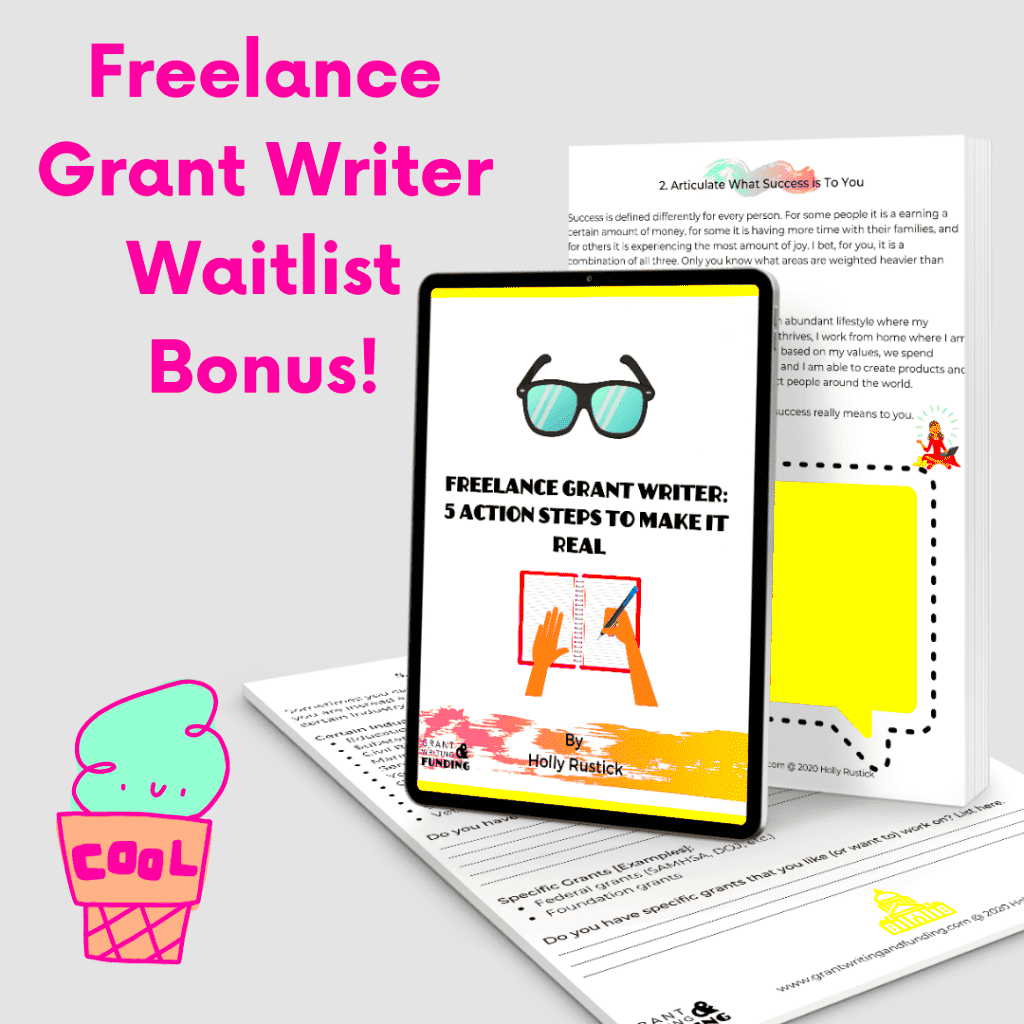Grant writing is a crucial skill for nonprofits seeking funding to support their missions. It involves crafting proposals that outline project needs, objectives, and how funds will be used. A well-written grant proposal can open doors to significant financial support, enabling nonprofits to carry out their important work.
Understanding the Role of a Grant Writer

The role of a grant writer is essential for nonprofits. A grant writer is responsible for:
- Researching funding opportunities
- Writing persuasive grant proposals
- Working with nonprofit staff to gather information
- Ensuring compliance with funder requirements
- Submitting proposals and tracking outcomes
In essence, grant writers serve as the bridge between nonprofit organizations and potential funders. They must understand the nonprofit's mission, goals, and programs to create compelling narratives that align with funders' interests. A successful grant writer not only communicates effectively but also understands the nuances of funding agencies and their expectations.
Also Read This: A Step-by-Step Guide on Generating Fiverr Gig Ideas
Essential Skills Needed for Grant Writing

To be an effective grant writer, certain skills are essential:
- Strong Writing Skills: Clarity, conciseness, and persuasive language are key.
- Research Skills: Knowing where to find funding opportunities and understanding grant requirements is crucial.
- Attention to Detail: Proposals must be accurate, well-organized, and free of errors.
- Project Management: Managing multiple deadlines and keeping track of submissions is necessary.
- Collaboration: Working with various stakeholders to gather the right information is important.
Developing these skills will greatly enhance your ability to write successful grant proposals and help nonprofits secure the funding they need to thrive.
Also Read This: How Many Jobs Are Expected on Fiverr in the Coming Years?
How to Gain Experience in Grant Writing

Gaining experience in grant writing can seem daunting, but there are plenty of ways to get your foot in the door. Here are some effective strategies:
- Volunteer with Nonprofits: Many nonprofits need help with grant writing but may not have the budget for a full-time grant writer. Volunteering your time can provide valuable experience and help you build connections.
- Take Online Courses: There are many online resources and courses focused on grant writing. Sites like Coursera, Udemy, and even local community colleges often offer relevant classes.
- Attend Workshops and Seminars: Look for workshops that focus on grant writing. These can provide practical tips and the opportunity to network with other writers and nonprofits.
- Practice Writing Proposals: Start by creating sample grant proposals for fictitious projects. This will help you develop your writing style and understand the structure of effective proposals.
- Seek Mentorship: Connect with experienced grant writers who can offer guidance and feedback on your writing. A mentor can help you navigate the industry and improve your skills.
By actively seeking out these opportunities, you will build a strong foundation in grant writing that will serve you well in your freelance career.
Also Read This: What to Sell on Fiverr: A 2018 Guide
Building a Strong Portfolio for Grant Writing
A strong portfolio is essential for showcasing your skills as a grant writer. Here are some tips to create an impressive portfolio:
- Include Successful Grant Proposals: If you have worked on successful proposals, include them in your portfolio. Make sure to obtain permission from the nonprofit before sharing any documents.
- Showcase a Variety of Projects: Highlight different types of projects you've worked on, such as community programs, educational initiatives, or environmental efforts. This diversity shows your ability to adapt your writing to different causes.
- Provide Samples: If you have written sample proposals or case studies for practice, include them as well. This demonstrates your writing ability even if you lack professional experience.
- Write Case Studies: Create case studies that detail the outcomes of the projects you have worked on. Include information on the funding received and how it was utilized to achieve goals.
- Keep It Professional: Ensure that your portfolio is well-organized and visually appealing. Use a clean layout and professional language.
Your portfolio is your marketing tool. Take the time to craft it thoughtfully, as it will play a key role in attracting clients.
Also Read This: How to Send a Message to a Buyer on Fiverr
Finding Nonprofit Clients as a Freelance Grant Writer
Finding nonprofit clients can be a rewarding challenge. Here are some strategies to help you connect with potential clients:
- Network Within the Nonprofit Community: Attend local nonprofit events, seminars, and workshops. Meeting people in the field can lead to job opportunities and valuable connections.
- Use Online Platforms: Websites like Fiverr, Upwork, and LinkedIn can help you find freelance opportunities. Create a compelling profile that highlights your skills and experience in grant writing.
- Join Professional Associations: Organizations like the Grant Professionals Association (GPA) offer networking opportunities, resources, and job boards to help you connect with nonprofits.
- Reach Out Directly: Identify nonprofits that align with your interests and contact them directly. Offer your services and explain how you can help them secure funding.
- Leverage Social Media: Use platforms like Twitter and Facebook to connect with nonprofits. Share your insights on grant writing, and engage with organizations that may need your expertise.
By employing these strategies, you can find clients who need your grant writing skills and build a successful freelance career.
Also Read This: How Much Do You Tip on Fiverr?
Setting Your Rates as a Grant Writer
Setting your rates as a grant writer can feel tricky, especially when you're just starting out. It's important to find a balance that reflects your skills while remaining attractive to potential clients. Here are some factors to consider:
- Experience Level: If you're new to grant writing, you might want to start with lower rates to attract clients. As you gain experience and a proven track record, you can gradually increase your fees.
- Project Complexity: Consider the complexity of the grants you’ll be working on. More complex projects that require extensive research and detailed proposals may warrant higher rates.
- Market Rates: Research what other grant writers with similar experience are charging. Websites like PayScale and Upwork can provide insights into industry standards.
- Payment Structure: Decide if you want to charge by the hour, per project, or on a retainer basis. Each method has its pros and cons, so choose what works best for you and your clients.
- Value of Your Services: Communicate the value you bring to your clients. If you have a strong history of successful grants, don't hesitate to set higher rates to reflect your expertise.
Ultimately, being transparent about your rates and the services you offer will help build trust with your clients while ensuring you’re fairly compensated for your work.
Also Read This: Why is Fiverr Not Working? Understanding Common Issues and Solutions
Tips for Writing Winning Grant Proposals
Writing a winning grant proposal takes practice and strategy. Here are some tips to help you create compelling proposals that stand out:
- Follow the Guidelines: Always adhere to the funder's guidelines. Each organization has specific requirements regarding format, length, and content.
- Be Clear and Concise: Use clear language and avoid jargon. Keep sentences and paragraphs short to ensure your message is easily understood.
- Tell a Story: Connect emotionally with the funder by telling a story about the need for your project. Use real-life examples to illustrate your points.
- Define Goals and Objectives: Clearly outline the goals of your project and the objectives that will help you achieve them. Make sure these are measurable and achievable.
- Include a Budget: Provide a detailed budget that outlines how the funds will be used. Make sure it aligns with your proposal and demonstrates fiscal responsibility.
- Proofread and Edit: Always review your proposal before submission. Errors can undermine your credibility, so take the time to ensure everything is polished.
By following these tips, you’ll increase your chances of writing successful grant proposals that secure funding for important projects.
Also Read This: How to Cancel a Buy on Fiverr
FAQ About Freelance Grant Writing
As a freelance grant writer, you may have questions about the field. Here are some frequently asked questions to help you navigate your new career:
- What qualifications do I need to become a grant writer? While there are no formal qualifications required, strong writing skills, an understanding of nonprofit work, and experience in research are essential.
- How do I find grant writing jobs? Networking, online platforms, and reaching out to nonprofits directly are great ways to find job opportunities. Don't underestimate the power of social media for connections.
- What should I include in my portfolio? Include successful grant proposals, writing samples, and case studies that highlight your skills and experience. Show a variety of projects to demonstrate your versatility.
- How much can I charge for my services? Rates vary widely based on experience, project complexity, and market rates. Research what others are charging and adjust based on your skill level.
- Can I work with multiple clients at once? Yes, many freelance grant writers work with multiple clients to diversify their income. Just ensure you can manage your time effectively.
Understanding these aspects of freelance grant writing will help you build a successful career and navigate challenges effectively.
Conclusion on Becoming a Freelance Grant Writer
Becoming a freelance grant writer can be a fulfilling career choice, offering the opportunity to support meaningful causes while enjoying the flexibility of freelance work. By honing your writing skills, gaining relevant experience, and building a solid portfolio, you can position yourself as a valuable asset to nonprofits seeking funding. Remember to set competitive rates that reflect your expertise, stay informed about the latest trends in grant writing, and continuously seek opportunities to expand your knowledge and network. With determination and the right strategies, you can establish a successful career as a freelance grant writer, making a positive impact in the nonprofit sector.




